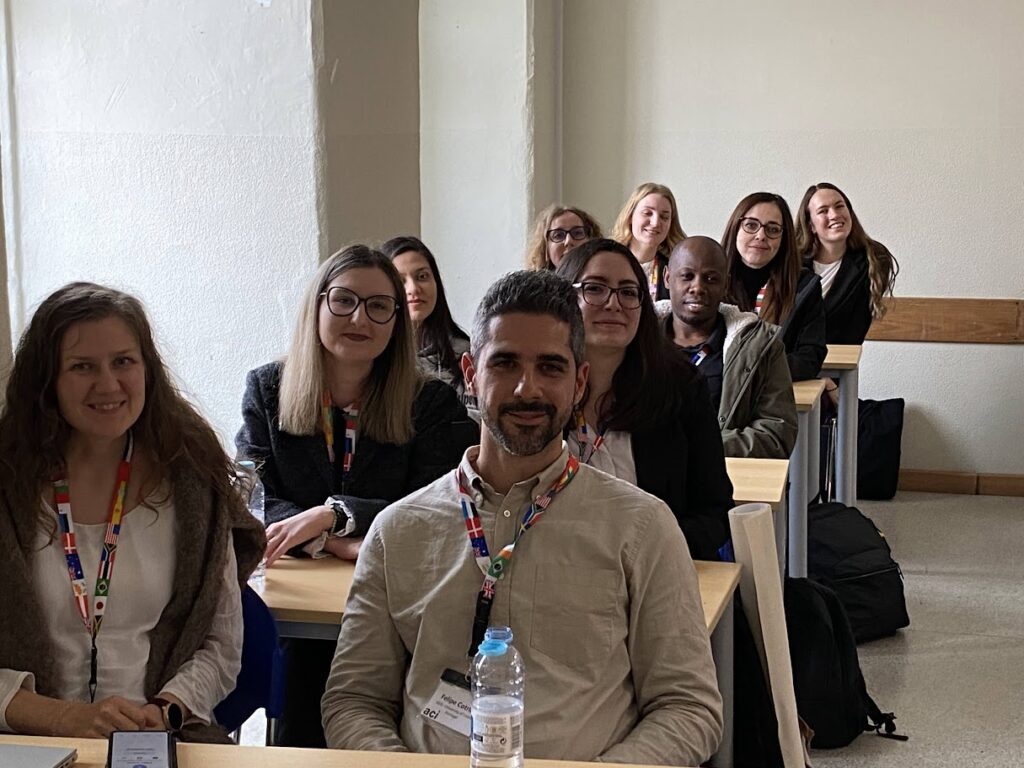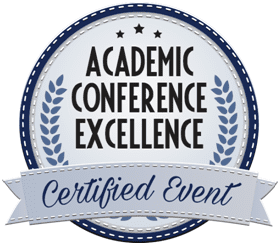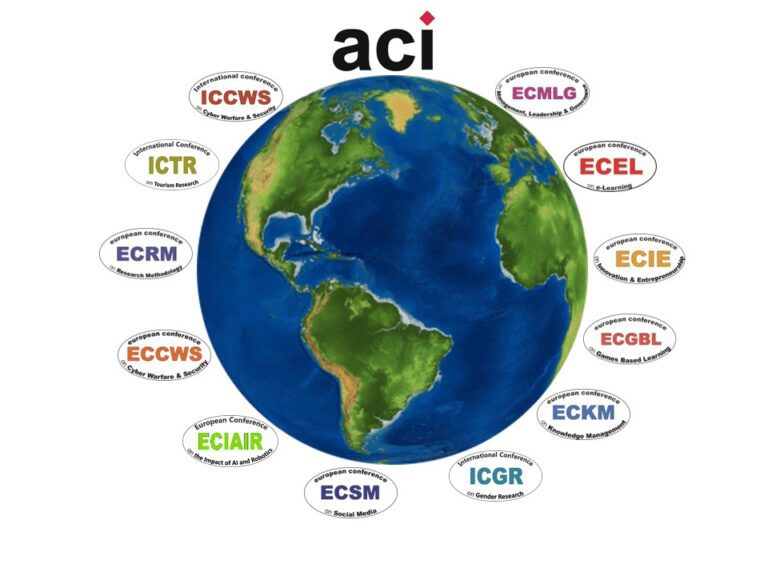28-29 May 2026


Larnaka, Cyprus
ECSM 2026
13th European Conference on Social Media
Call for Papers

- Academic Papers
- Case Studies
- Work in-Progress Papers
- PhD Papers
- Masters Papers
- Posters and Presentations
- Non- Academic or Practitioner Contributions
Aims and Scope
Aims and Scope
The primary aim of the ECSM is to encourage academic and professional dialogue on the diverse aspects of social media, promoting research that contributes to the better understanding of how social media impacts our lives. The conference seeks to bridge the gap between theory and practice by encouraging contributions that offer both theoretical insights and practical implications. It also provides a collaborative environment where participants can engage in knowledge exchange, interact with peers, and explore emerging trends and issues in social media.
The scope of ECSM is deliberately broad and interdisciplinary, encompassing research that explores the societal implications of social media, its role in communication and community building, and its integration into business and educational practices. Additionally, the conference addresses the analytical and technical aspects of social media, such as data mining, analytics, and the ethical and policy-related challenges that arise from its use.
Topics Covered
The call for papers for the ECSM conference asked for contributions that considered the following topics. In addition the committee welcomed papers on a number of specialist mini-tracks which can be seen at the end of this list.
Social Media and Society
- how social media affects social behaviour
- cultural dynamics
- community building.
Social Media in Business
- social media as part of business strategy,
- marketing,
- customer engagement
- brand management.
Educational Uses of Social Media
- the integration of social media into educational settings,
- the impact of social media on learning, teaching methods, and academic engagement.
- Social media as a research tool.
Social Media Analytics and Data Mining
- methodologies and tools for analysing social media data
- sentiment analysis
- network analysis
- big data challenges.
Policy and Ethical Issues
- regulatory, legal, and ethical implications of social media use,
- privacy concerns,
- misinformation
- the digital divide.
Emerging Technologies
- the intersection between social media and emerging technologies
- artificial intelligence
- virtual reality
- blockchain.
Mini Tracks
From Passive Consumption to Critical Engagement: Rethinking Social Media in the Post-Truth Era
Mini Track Chair: Christiana Varda, UCLan Cyprus
We invite scholarly contributions that critically examine the evolving relationship between social media, information consumption, and societal trust. In an era often characterized by the diminishing role of gatekeepers, social media deregulation, and the proliferation AI-generated “slop”, concerns for online misinformation has heightened. The presence of online misinformation often serves a polarizing function, and can be amplified by social media algorithms in a bid to increase platform engagement. Understanding how individuals engage with digital content on social media, and how to best support critical engagement, is paramount. We seek proposals that explore the shift from passive reception of social media narratives to active, critical evaluation. One of the challenges of studying how people critically engage with online misinformation is concerned with the ecological validity of studies that take place in simulated contexts. Therefore methodological reflections on how to advance knowledge in this area are welcome. Additional topics include—but are not limited to—research on media literacy initiatives, the development of critical thinking skills in online environments, strategies for fostering responsible digital citizenship, and collective social media imaginaries (i.e., the shared beliefs and perceptions of what social media is and can be) for a critically engaged citizenry. We encourage interdisciplinary approaches from fields such as Communication Studies, Sociology, Psychology, Political Science, Education, and Computer Science. Contributions can be conceptual, empirical, methodological or can focus on practical interventions. The goal is to illuminate pathways toward a more informed and discerning public capable of navigating the complexities of the contemporary information landscape. Topics may include, but are not limited to:
- The impact of AI-Generated Content on Critical Thinking and Trust
- Developing/Evaluating Media Literacy and Digital Citizenship Learning Interventions
- Cognitive Processes of Online Critical Evaluation on Social Media
- The Role of Gatekeepers and Regulation in Redefining Social Media’s Role
- Algorithmic Amplification and the Shaping of Social Media Imaginaries
Social Media Challenges for Human Security
Mini Track Chair: Professor Maria-Magdalena Popescu, Carol I National Defense University, Bucharest, Romania
Technological progress has caused an increase of unconventional weapons that have raised the threat level for individuals and society. This has been amplified by the uncertainty generated by managing words and images, through AI algorithms and through social engineering techniques. Also, the rapid growth of social media has allowed for the information to be disseminated and identified in a reckless manner. Deepfakes, centred on economic or political attacks, and fake news, acting on democracy and social systems, are the products that state and non-state actors use, aimed at weakening security in general and personal security in particular. Moreover, deep fake and fake news have become main instruments for hybrid warfare and are important topics for security culture. In terms of human security, social media generates a series of advantages, yet whatever is developed through the hostile use of these networks generates a series of threats for societies. On the other hand, the globalisation of information, the volatilization of typographic texts and the infinity of dialogic possibilities along with the inordinate opportunities to reinvent ourselves generates alternative means of expression that co-exist with traditional ones, to meet gratification for an identity shaped out of social and professional interaction. The message, seen as a dynamic interaction environment, acts upon the whole architecture of ties and constructs relationships differently. Polarisation, syndicalisation and radicalisation are identity dynamics phenomena in a fluid environment. Starting from these aspects, the present mini track provides a stage for a general understanding on the implications that social media challenges have on human security.
- cognitive warfare and the battles of strategic narratives
- technological progress – a threat to individuals and society
- weaponization of social media in the information warfare
- hybrid warfare actions and actors use in social media
- polarisation and radicalisation as identity dynamics in a fluid environment
- politics and international relations use of social media
Social Media Cyber Security and Threats
Mini Track Chair: Prof. Dr. Abbas Fadhil Aljuboori Gulf College – Department of Computing Sciences – Muscat – Sultanate of Oman
Social media platforms have become primary forms of communication in today’s digital world. This technology has allowed us to virtually connect with friends, family and colleagues from all over the globe. However, it has also opened up new avenues for cybercriminals to exploit users’ data. The risk of digital identity theft, financial fraud and other malicious activities increases with the use of social media. The most common cyber threats associated with using social media are malicious software and links that can infect a computer or mobile device, phishing scams that attempt to gain access to a user’s personal information, identity theft, and account hijacking. Information Disclosure is also a considerable risk as social media users share their personal information. The more public data is posted on social networks, the easier it is for criminals to access it.
Social Media Access Control
Social Media Policy Implementation
Social Media Training
Social Media Monitoring for Employees
Social Media Verification
Cybersecurity Culture Development
Incident Response Plans from Social Media
Important Dates
| Abstract submission deadline | STILL ACCEPTING ABSTRACTS |
| Notification of abstract acceptance | 19 November 2025 |
| Full paper due for review | 25 December 2025 |
| Notification of paper acceptance (with any requested changes) | 05 March 2026 |
| Earlybird registration closes | 19 March 2026 |
| Final paper due (with any changes) | 02 April 2026 |
| Final Author payment date | 23 April 2026 |
| Social Media in Practice Awards abstract submission | |
| Social Media in Practice Awards notification of abstract acceptance | 31 December 2025 |
| Social Media in Practice Awards full case history submission | 09 February 2026 |
| Social Media in Practice Awards finalists announced | 21 March 2026 |
Keynote Speakers

Chief Scientist of the Republic of Cyprus, Chair of the National AI Taskforce

Integrating AI Workflows with Human Logic: The New Frontier of Operational Excellence

Creativity, Content Creators & Transparency
Conference Contacts
| Academic Enquiries | Professor Dan Remenyi |
| Submission Enquiries | Helen Taylor |
| Registration Enquiries | Belinda Burchell |
| Other Enquiries | Marti Bell |





